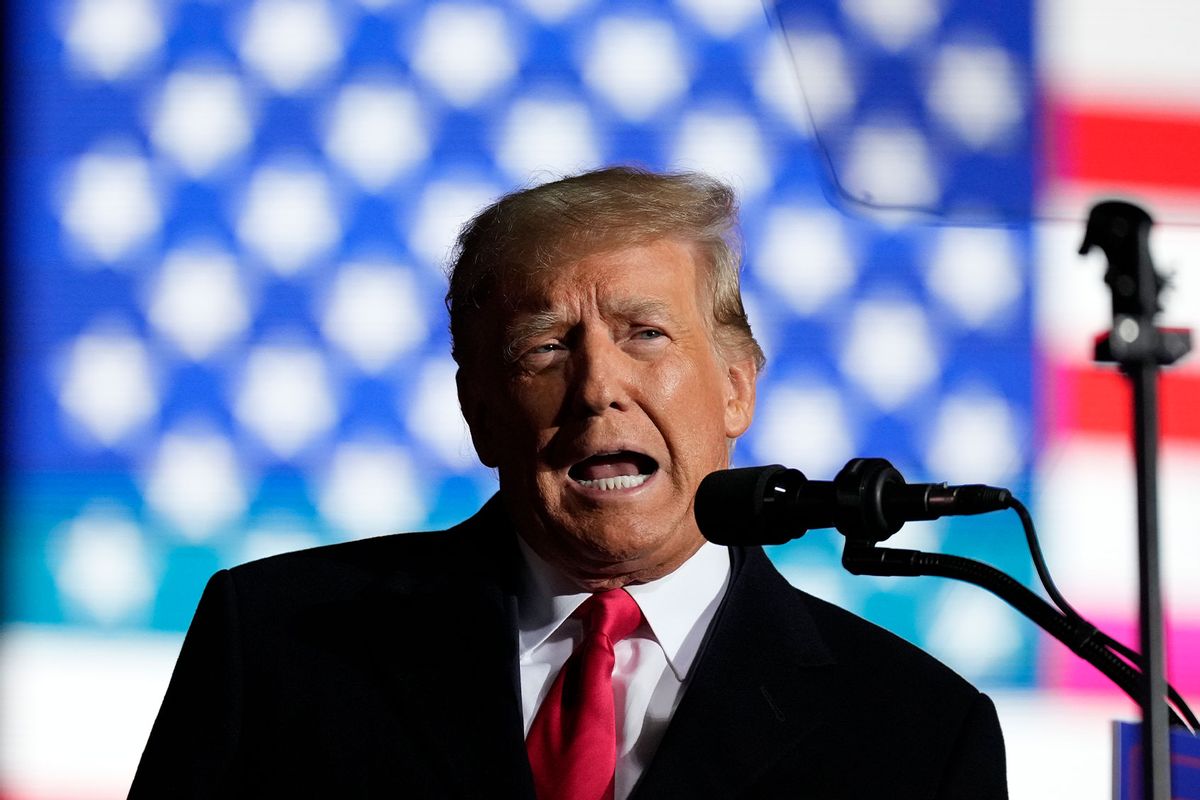Special counsel Jack Smith's team has sought a wide range of documents related to former President Donald Trump's fundraising after the 2020 election to determine whether he scammed supporters for donations, eight sources told The Washington Post.
Smith's team investigating the Jan. 6 Capitol attack sent subpoenas in recent weeks to Trump advisers, former campaign aides, Republican operatives and other consultants involved in the 2020 campaign, according to the report. Some of the people have also been interviewed before a grand jury in D.C.
The probe is focused on Trump's fundraising after the election until he left office on Jan. 20, 2021, when he raised millions by pushing election lies.
Prosecutors are interested in whether anyone associated with the fundraising violated wire fraud laws, which make it illegal to lie over email to scam people out of money, according to the report.
Prosecutors are seeking communications to compare what Trump allies were telling each other privately about the voter fraud claims they pushed to the public, raising more than $200 million, sources told the Post.
Prosecutors used a similar legal theory to charge former Trump adviser Steve Bannon with fraudulent fundraising for a border wall on private land. Bannon was ultimately pardoned before he faced trial but his three co-defendants were convicted or pleaded guilty. Bannon still faces similar charges in Manhattan and has pleaded not guilty.
The House Jan. 6 committee in its report found that the Trump campaign and Republican National Committee's joint fundraising operation raised $250 million between the election and Jan. 6, sending as many as 25 emails per day falsely claiming the election was "rigged."
Other emails urged supporters to join the "Trump Army."
"TODAY. This is our LAST CHANCE," the Trump campaign said in an email on Jan. 6. "The stakes have NEVER been higher. President Trump needs YOU to make a statement and publicly stand with him and FIGHT BACK."
Investigators are seeking communications that support or contradict the statements in the fundraising emails and any communications about whether the fundraising emails could incite violence or include false or misleading information, according to the Post.
Prosecutors have also sought information related to the "Election Defense Fund" cited in certain fundraising emails asking donors to help raise money to challenge the election. Investigators asked for any documents about whether such a fund existed or whether there were plans to create the fund, according to the report.
Trump advisers testified to the Jan. 6 committee that the fund was merely a marketing tactic and never existed.
Investigators have asked witnesses about what happened with the hundreds of millions of dollars raised.
Want a daily wrap-up of all the news and commentary Salon has to offer? Subscribe to our morning newsletter, Crash Course.
But it's unclear whether prosecutors could build a wire fraud case, the Post added, noting that fundraising emails from both parties tend to contain hyperbole and misleading language.
Adav Noti, legal director of the nonprofit Campaign Legal Center, told the Post that the key question in the case is whether "whoever was approving or making the solicitations knew they were false," adding that fundraising for an election defense fund "had already raised 100 times more money than it could have spent on that. … I think the donors relied on the statements about where the money would go."
The Jan. 6 committee concluded that virtually none of the money was spent on recounts or legal challenges. Nearly all of the money went to Trump-allied consultants or was moved into the pro-Trump Save America PAC.
"Not only did President Trump lie to his supporters about the election, but he also ripped them off," the committee's report said.
Conservative attorney and Trump critic George Conway told MSNBC that the operation "couldn't have possibly used" all $200+ million to bring "60 meritless lawsuits that were summarily thrown out of court."
Conway noted the difference between political fundraising where "you can almost say anything" and ads for products where "you'd go to jail for mail or wire fraud" if you are caught lying.
"I think this is going to be a very interesting case for that reason," he said. "Because the First Amendment should protect people from speech that is designed to fleece hundreds of thousands of people of hundreds of billions of dollars. And that's essentially what happened here. They made lies saying they needed this money to challenge election fraud, but they were the only ones who were committing fraud. And they were committing fraud on all these people who sent in these checks thinking that they were somehow going to uncover fraud when everyone in the Trump campaign was telling the president of the United States that there's no there there."
Read more
about the special counsel probes



Shares